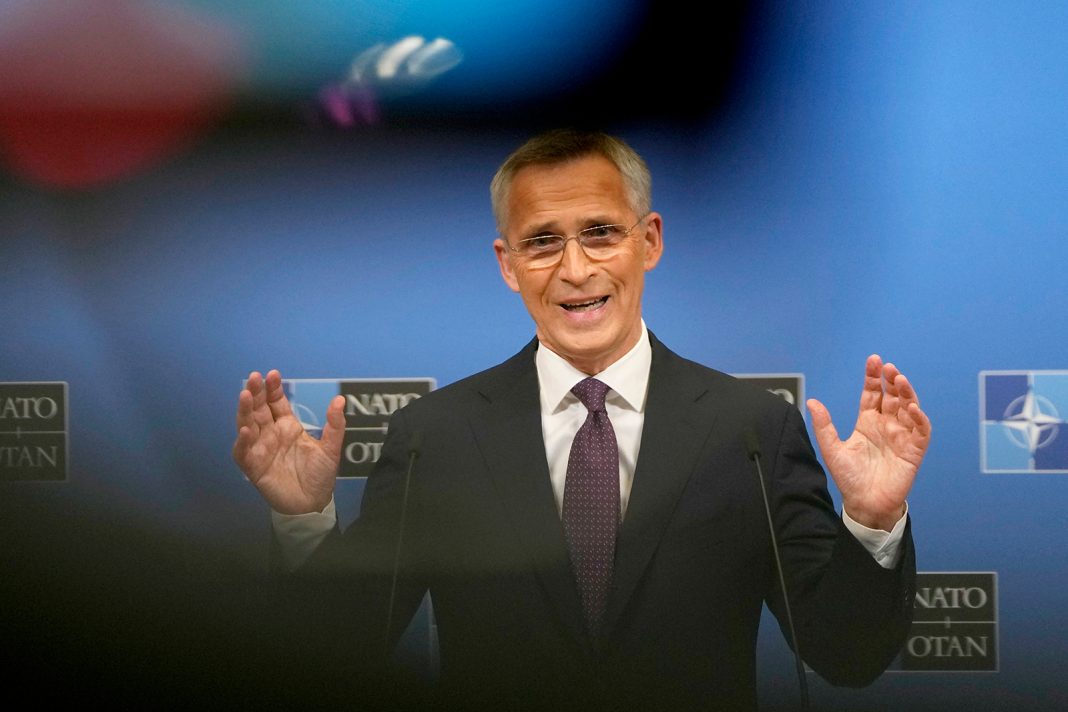“I won’t go into operational details about how many nuclear warheads should be operational and which should be stored, but we need to consult on these issues. That’s exactly what we’re doing,” he said.
The NATO chief added that transparency on the issue “helps to communicate the direct message” that NATO is a “nuclear alliance”.
“NATO’s aim is, of course, a world without nuclear weapons, but as long as nuclear weapons exist, we will remain a nuclear alliance, because a world where Russia, China and North Korea have nuclear weapons, and NATO does not, is a more dangerous world,” Stoltenberg emphasized.
He said that he was particularly concerned about China, which is investing heavily in advanced weapons and will increase the number of its nuclear warheads to 1,000 by 2030.
“And that means that in a not-very-distant future NATO may face something that it has never faced before, and that is two nuclear-powered potential adversaries – China and Russia. Of course, this has consequences,” the NATO chief opined.
Stoltenberg added that the US and its European allies are currently modernizing their nuclear arsenals.
“The US is modernizing their gravity bombs for the nuclear warheads they have in Europe and European allies are modernizing the planes which are going to be dedicated to NATO’s nuclear mission,” he continued..
According to the newspaper, the UK has deployed about 40 of its 225 nuclear warheads, while the US has 1,700 warheads (and another 3,700 in reserve). At the same time, the daily emphasized that France “does not make its atomic arsenal available to the alliance because of a long-held decision to maintain independence over its own deterrence.”
Nuclear powers are increasingly developing their arsenals as the geopolitical situation deteriorates, according to a report by the Stockholm International Peace Research Institute (SIPRI).
“The nine nuclear-armed states – the United States, Russia, the United Kingdom, France, China, India, Pakistan, the Democratic People’s Republic of Korea (North Korea) and Israel – continued to modernize their nuclear arsenals and several deployed new nuclear-armed or nuclear-capable weapon systems in 2023,” the report said. One of SIPRI’s key findings is that the number and types of weapons are increasing as countries rely more and more on nuclear deterrence.
In January 2024, there were some 12,121 nuclear warheads in the world, of which 9,585 were on alert. According to the report, 3,904 of these were deployed on missiles or aircraft, a 60% increase over estimates for the previous January. About 2,100 deployed warheads were on high alert on ballistic missiles. According to the research institute, almost all of the warheads belonged to Russia or the United States, but China is believed to have placed some of them on high alert for the first time.
India, Pakistan, and North Korea, in turn, are looking for a way to put multiple warheads on ballistic missiles. The United Kingdom, China, Russia, the United States and France already have such capabilities, according to the institute.
Commenting on the situation in Ukraine, Stoltenberg urged Western countries to continue supporting Kiev.
“I strongly believe that if [Russian President Vladimir] Putin prevails in Ukraine, we will become more vulnerable, and then we will need to invest even more in our defense,” he pointed out.
